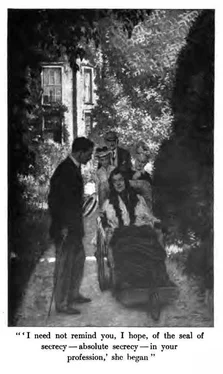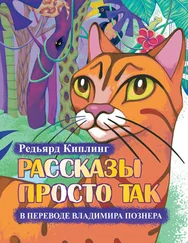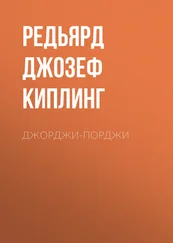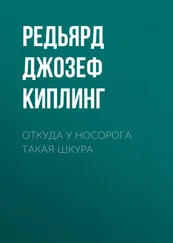Head, side, and riding lights (by size) Nos.00 to 20 A.B.C. Standard. Rockets and fog–bombs in colours and tones of the principal clubs (boxed). A selection of twenty L2 17 6 International night–signals (boxed) L1 11 6
Spare generators guaranteed to lifting power marked on cover (prices according to power).
Wind–noses for dirigibles—Pegamoid, cane–stiffened, lacquered cane or aluminum and flux for winter work.
Smoke–ring cannon for hail storms, swivel mounted, bow or stern.
Propeller blades: metal, tungsten backed; paper–mache wire stiffened; ribbed Xylonite (Nickson's patent); all razor–edged (price by pitch and diameter).
Compressed steel bow–screws for winter work.
Fused Ruby or Commercial Mineral Co. bearings and collars.
Agate–mounted thrust–blocks up to 4 inch.
Magniac's bow–rudders—(Lavales patent grooving).
Wove steel beltings for outboard motors (nonmagnetic).
Radium batteries, all powers to 150 h.p. (in pairs).
Helium batteries, all powers to 300 h.p. (tandem).
Stun'sle brakes worked from upper or lower platform.
Direct plunge–brakes worked from lower platform only, loaded silk or fibre, wind–tight.
CATALOGUES FREE THROUGHOUT THE PLANET
As ADAM lay a–dreaming beneath the Apple Tree,
The Angel of the Earth came down, and offered Earth in fee.
But Adam did not need it,
Nor the plough he would not speed it,
Singing:—"Earth and Water, Air and Fire,
What more can mortal man desire?"
(The Apple Tree's in bud.)
As Adam lay a–dreaming beneath the Apple Tree,
The Angel of the Waters offered all the Seas in fee.
But Adam would not take 'em,
Nor the ships he wouldn't make 'em,
Singing:—"Water, Earth and Air and Fire,
What more can mortal man desire?"
(The Apple Tree's in leaf.)
As Adam lay a–dreaming beneath the Apple Tree,
The Angel of the Air he offered all the Air in fee.
But Adam did not crave it,
Nor the flight he wouldn't brave it,
Singing:—"Air and Water, Earth and Fire,
What more can mortal man desire?"
(The Apple Tree's in bloom.)
As Adam lay a–dreaming beneath the Apple Tree,
The Angel of the Fire rose up and not a word said he.
But he wished a fire and made it,
And in Adam's heart he laid it,
Singing.—"Fire, fire, burning Fire,
Stand up and reach your heart's desire!"
(The Apple Blossom's set.)
As Adam was a–working outside of Eden–Wall,
He used the Earth, he used the Seas, he used the Air and all;
And out of black disaster
He arose to be the master
Of Earth and Water, Air and Fire,
But never reached his heart's desire!
(The Apple Tree's cut down!)
Long and long ago, when Devadatta was King of Benares, I wrote some tales concerning Strickland of the Punjab Police (who married Miss Youghal), and Adam, his son. Strickland has finished his Indian Service, and lives now at a place in England called Weston–super–Mare, where his wife plays the organ in one of the churches. Semi–occasionally he comes up to London, and occasionally his wife makes him visit his friends. Otherwise he plays golf and follows the harriers for his figure's sake.
If you remember that Infant who told a tale to Eustace Cleever the novelist, you will remember that he became a baronet with a vast estate. He has, owing to cookery, a little lost his figure, but he never loses his friends. I have found a wing of his house turned into a hospital for sick men, and there I once spent a week in the company of two dismal nurses and a specialist in "Sprue." Another time the place was full of schoolboys—sons of Anglo–Indians whom the Infant had collected for the holidays, and they nearly broke his keeper's heart.
But my last visit was better. The Infant called me up by wire, and I fell into the arms of a friend of mine, Colonel A.L. Corkran, so that the years departed from us, and we praised Allah, who had not yet terminated the Delights, nor separated the Companions.
Said Corkran, when he had explained how it felt to command a native Infantry regiment on the border: "The Stricks are coming for to–night–with their boy."
"I remember him. The little fellow I wrote a story about," I said. "Is he in the Service?"
"No. Strick got him into the Centro–Euro–Africa Protectorate. He's Assistant–Commissioner at Dupe—wherever that is. Somaliland, ain't it, Stalky?" asked the Infant.
Stalky puffed out his nostrils scornfully. "You're only three thousand miles out. Look at the atlas."
"Anyhow, he's as rotten full of fever as the rest of you," said the Infant, at length on the big divan. "And he's bringing a native servant with him. Stalky be an athlete, and tell Ipps to put him in the stable room."
"Why? Is he a Yao—like the fellow Wade brought here—when your housekeeper had fits?" Stalky often visits the Infant, and has seen some odd things.
"No. He's one of old Strickland's Punjabi policemen—and quite European—I believe."
"Hooray! Haven't talked Punjabi for three months—and a Punjabi from Central Africa ought to be amusin'."
We heard the chuff of the motor in the porch, and the first to enter was Agnes Strickland, whom the Infant makes no secret of adoring.
He is devoted, in a fat man's placid way, to at least eight designing women; but she nursed him once through a bad bout of Peshawur fever, and when she is in the house, it is more than all hers.
"You didn't send rugs enough," she began. "Adam might have taken a chill."
"It's quite warm in the tonneau. Why did you let him ride in front?"
"Because he wanted to," she replied, with the mother's smile, and we were introduced to the shadow of a young man leaning heavily on the shoulder of a bearded Punjabi Mohammedan.
"That is all that came home of him," said his father to me. "There was nothing in it of the child with whom I had journeyed to Dalhousie centuries since."
"And what is this uniform?" Stalky asked of Imam Din, the servant, who came to attention on the marble floor.
"The uniform of the Protectorate troops, Sahib. Though I am the Little Sahib's body–servant, it is not seemly for us white men to be attended by folk dressed altogether as servants."
"And—and you white men wait at table on horseback?" Stalky pointed to the man's spurs.
"These I added for the sake of honour when I came to England," said Imam Din Adam smiled the ghost of a little smile that I began to remember, and we put him on the big couch for refreshments. Stalky asked him how much leave he had, and he said "Six months."
"But he'll take another six on medical certificate," said Agnes anxiously. Adam knit his brows.
"You don't want to—eh? I know. Wonder what my second in command is doing." Stalky tugged his moustache, and fell to thinking of his Sikhs.
"Ah!" said the Infant. "I've only a few thousand pheasants to look after. Come along and dress for dinner. We're just ourselves. What flower is your honour's ladyship commanding for the table?"
"Just ourselves?" she said, looking at the crotons in the great hall. "Then let's have marigolds the little cemetery ones."
So it was ordered.
Now, marigolds to us mean hot weather, discomfort, parting, and death. That smell in our nostrils, and Adam's servant in waiting, we naturally fell back more and more on the old slang, recalling at each glass those who had gone before. We did not sit at the big table, but in the bay window overlooking the park, where they were carting the last of the hay. When twilight fell we would not have candles, but waited for the moon, and continued our talk in the dusk that makes one remember.
Читать дальше












